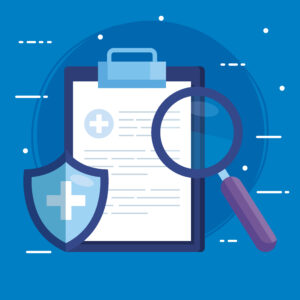Read time 7 minutes
This blog is another opportunity to feel grateful. Thank you, dear Universe, you continue to bless me with recovery and health.
Like most of us, I didn’t pay attention to definitions and acronyms outside my work.

In 2016, my life changed after getting diagnosed with a rare and a couple of chronic diseases.
I was diagnosed with Isaacs’ Syndrome. Isaacs’ is a neuromuscular health condition that stems from muscle hyperactivity. It is also called Neuromyotonia, Isaacs-Mertens syndrome, and Quantal squander syndrome. My lift post-diagnosis underwent a drastic change. In the process, I also discovered that I had Lyme disease. Lyme is a bacterial illness that gets transmitted through ticks. I was also accompanied by Glaucoma. Glaucoma is an eye-related disease that damages the optic nerves. And Membranous Glomerulonephritis is a progressive kidney disease.
The way the extrinsic stimulus unfolded evoked a shocking biological response for me.
Hospitals and clinics became my second home. I had to deal with stabbing pain, twitches, and alien symptoms throughout my body. My prescriptions had an ongoing list of medicines.
There were so many unanswered questions.
While trying to find the answers online, I was often found trying to decode the findings. It was a struggle to communicate with medical professionals or search for information. I Googled the meaning of words to find out what they meant.
The medical jargon and terminologies lead to more confusion and misunderstanding. I often found myself feeling more worried and frustrated. They seemed gibberish to me and my family as we struggled to comprehend.
My doctors were quite occupied with being asked for each clarification. I realized that I was unsure about almost everything. In my experience, Isaacs’ Syndrome is not something that can be managed alone.
I always felt the need to understand those terminologies. A little better if not completely. Thus, it became even more crucial to have answers and information to deal with it all.
Please Note: – The world of rare and chronic disease terminologies is vast. Through this blog, I wish to share a list that eased my life. It helped me communicate with medical professionals given my medical condition: –
Antigen:
Any substance that our body finds as foreign or harmful. It causes our immune system to form antibodies in defense.
Antibiotic:
A substance that slows or kills the growth of bacteria.
Antibodies:
Is a type of protein produced by our immune system. It protects our system against harmful substances, called antigens.
Atrophy:
Wasting away of organs or tissues due to any disease, undernourishment, or aging
Autoimmune disease:
A type of disease in which the immune system attacks and destroys healthy tissues and organs. Our immune system by mistake identifies the healthy tissues as a threat.
Autoimmune Response:
The process in which the body’s immune system mistakes and views the body’s tissues and organs as a threat. It sees them as foreign invaders and attacks them.
An anticonvulsant medication used in the treatment of epilepsy and neuropathic pain.
Dyspnoea:
A medical term used for difficulty or distress in breathing.
EMG, Electromyography:
It is a diagnostic procedure to assess the health of muscles and nerve cells. It transmits electric signals that cause muscles to contact. It uses tiny devices to record these signals into graphs.
Fasciculation:
Muscular twitching or involuntary contraction of contiguous groups of muscle fibers.
It is a broad term describing a variety of diseases that damage the optic nerve of the eyes. The disease enables communication between the eye and the brain.
The National Eye Institute of the US describes Glaucoma as a “silent thief of sight”.
The disease can cause a sudden loss of vision preceded by nearly no symptoms whatsoever.
Hypertrophy:
The increase of the size of an organ or tissue from the increase in the size of its cells.
Intravenous immune globulin (IVIG):
Is a product made up of human antibodies that can be given intravenously (through a vein).
Lymes:
Its diagnosis is not straightforward. As a patient one experiences flu-like symptoms when they first contract the disease.
A bullseye- or target-shaped rash seen in a few patients is an important symptom of Lyme disease. It is caused by a bacterial infection. It is transmitted to humans by certain species of insects called ticks.
Many patients do not report rashes and only get diagnosed with Lyme when they suffer muscle. It is accompanied by nerve and joint pains. Also, body aches and headaches, irregular heartbeat, and arthritis.
Membranous Glomerulonephritis:
It is a slow progressive disease of the kidneys. It develops due to the inflammation of the kidney structures. It causes problems with the functioning of the kidney.
Myokymia: –
Slow, undulating muscular contractions in muscles. This is a type of fasciculation present in some disorders of the nervous system.
Neuromyotonia (Isaac’s Syndrome):
It is a rare disease characterized by spontaneous muscular activity. It results from repetitive motor unit action potentials of peripheral origin.
As a result of it, patients may present with fasciculations and muscle cramps. Also, myotonia-like symptoms and excessive sweating may show up.
A small proportion of cases with neuromyotonia may develop central nervous system findings. This may cause a disorder called Morven’s Syndrome. They may also have antibodies against potassium channels in their serum samples.
Peripheral Nerve Hyperexcitability (PNH):
It is a term used to include a group of conditions with abnormal electrical discharges. It is generated from motor axons and seen on needle electromyography (EMG).
Pathogenic:
It is an Infection that is a biological agent that causes disease or illness.
Plasmapheresis:
It is a process where the blood is withdrawn from the body to remove the blood plasma. The separation of cells and plasma is done. Later the cells are transfused back into the bloodstream. It is performed especially to remove antibodies in treating autoimmune conditions.
Steroids:
It includes many hormones, alkaloids, and vitamins. They are a large class of organic compounds with a characteristic molecular structure. It contains four rings of carbon atoms.
Twitching:
give or cause to give a short, sudden jerking or convulsive movement.
During my journey, I came across many non-medical important terminologies. These terminologies changed the way I perceived things. Together they generated a new way towards my recovery and the process of healing.
Listing a few:
Family Support:
My key to healing.
I am fortunate that my illness became the illness of the family, and they all came forward to support me.
For me, my family meant being together during thick and thin.
A friend in need is a friend indeed.
Holistic Healing:
It’s a lifestyle concept that promotes physical, mental, and spiritual well-being. Instead, of being only symptomatic, the approach talks about an integrated way of treatment.
It covers a larger picture where the body, mind, and spirit come together to heal.
Hope:
An optimistic state of mind that is based on an expectation of positive outcomes.
An occasional injection of humour and resultant laughter is essential for life.
Laughter therapy is an amalgamation of bringing humor into a clinical setting. The idea is to help overcome difficult emotions or challenges.
It is a growing field in the mental health space to promote wellbeing.
An expected serious situation involving injury or illness, requiring immediate action.
A patient’s medical history or information in one place.
A person’s ability to deal with and adapt to uncertain circumstances. It uses adequate mental capabilities to solve problems and move forward.
It helps a person to be calm during a crisis and think better.
Making the right investment moves that meet specific needs or set future goals.
To Conclude
Times became tough after getting diagnosed with Isaacs’ Syndrome and other chronic diseases.
I realized that understanding medical terminologies is the backbone of healthcare communication.
For me understanding some terminologies helped. However not knowing everything is important. Being aware of the basics adds to the safety and efficiency from a patient’s perspective.
I could describe my symptoms and my condition better. It eased me in maintaining medical records. These records had my medical history, medications, and lab results.
It eased in understanding and interaction with doctors. Also, it helped me understand medical prescriptions.
I could better understand medical research papers related to my medical condition.
I encourage my readers to develop their medical language skills. It would only enhance and give a better healthcare experience.
DISCLAIMER
The views expressed above in this article are the author’s own and do not represent any kind of medical advice.
References:
Isaacs’ Syndrome | Neuromyotonia – Glossary (medindia.net)
Medical Dictionary of Health Terms: A-C – Harvard Health
Peripheral nerve hyperexcitability – ScienceDirect


